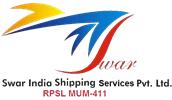We Provide The Highest Standards of Services To Our Clients.
Swar India delivers effective QHSE management with the highest standards of services to its clients, and safe and efficient standards of operation that comply with the international standards, relevant guidelines and regulations which will continue to be the strongest element of marketing of our services. The two keywords for QHSE:
- Efficiency – Doing right things
- Effectiveness – Doing things right
Our QHSE solutions focus on improving the management and mitigation of risks relating to quality, health, safety and the environment, preventing any injury or ill health to employees. This is achieved through the provision of comprehensive rules and guidelines based on a series of well-defined strategic objectives.
QHSE & ASSET INTEGRITY
QHSE Management
- Risk Management
- Health Prevention & Progression
- Environment Management
- Consultation & Monitoring
- Incident Reporting & Investigation Permit
Control of Simultaneous Operations
Safe Operations
- Adequate & Competent Personnel
- Accountability Framework
- Systems & Procedures
- Permit to Work Control
- Emergency Preparedness & Response
Client Engagement
Technology Integrity
- Safety Case
- Critical Tasks
- Inspections & Maintenance
- Change Management
- Operating Envelope
Audit & Assurance
QHSE MANAGEMENT
1. RISK MANAGEMENT.
QHSE places an emphasis on incremental improvement, communication, and reducing occupational risks.
Track all risks in real-time, share corrective actions across the organization, conduct risk assessments, easily generate risk reports, and adapt to changing business needs with custom models, analysis, and reports.
Standardize and automate risk management processes (i.e., risk identification, risk analysis, risk evaluation, risk treatment, risk monitoring, and risk reporting), which leads to greater efficiency and productivity for your organization
2. HEALTH PREVENTION & PROTECTION
In order to be effective, a QHSE management system needs consistent communication, a flexible work environment, and strategic implementation. Other foundational principles include:
- The support and participation of top management
- The implementation of QHSE policies company-wide; each employee (including contractors) is subject to the procedures
- Establishing individual responsibility for continuous improvement, protecting the environment, and ensuring occupational safety
- Prioritizing safety first as environmental accidents and injuries are eliminated
- Highlighting the importance of maintaining records as well as the documentation and investigation of incidents
3. ENVIRONMENT MANAGEMENT.
Keep organization in compliance at all times with powerful reporting that allows you to compile all environmental data to ensure are always meeting your environmental obligations
4. CONSULTATION & MONITORING.
Ensuring that staff has, and uses, safety equipment,
- Enforcing safety rules;
- Including safety in performance reviews;
- Providing safety coaching to staff;
- Monitoring staff safety performance;
- Conducting incident investigations.
5. INCIDENT REPORT AND INVESTIGATION.
Investigate the incident, collect data. Analyze the data, identify the root causes. Report the findings and recommendations.
- Near Miss Reports. Near misses are events where no one was injured, but given a slight change in timing or action, someone could have been. …
- Injury and Lost Time Incident Report. …
- Exposure Incident Report. …
- Sentinel Event Report.
6. CONTROL OF SIMULATION OPERTIONS.
- Effectively developing continuous improvement.
- Providing an understanding of the customer’s needs and requirements.
- Meeting customer needs and expectations through exceptional customer service.
- Improving the effectiveness of product and services
